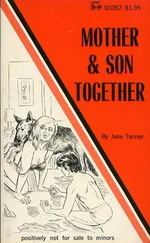Klieg shrugs. “Oh, seven or eight years, I guess, depending on what you count. For a while I subscribed to a romance service, if you know about those… but for the last few years I haven’t even done that.”
“Romance service” is not quite the kind of euphemism that “escort service” used to be, but it’s not far from it, either. What the romance service guarantees is that a fixed number of attractive women—the customer defines “attractive,” but it need have nothing to do with the sort of women who would really be attracted to the customer—will approach the customer romantically, somewhere out in public, act friendly and interested, and accept at least five dates with him.
As long as he doesn’t ask, he’ll theoretically never know whether he’s being lucky or the service is functioning. In practice, a paunchy middle-aged businessman can usually figure out that the girls in their late teens and early twenties who keep picking him up in bars or at the park are coming from the service, unless he’s seriously self-deluded as well. “So,” she says cautiously, “what did you order from the romance service?”
“Everything,” he says. “They had kind of a sampler deal, where they’d just throw your name in at random. The trouble is, I’m not any good at telling someone who likes me from someone who acts like she likes me. I kept getting disappointed when they didn’t want to go beyond the fifth date.”
“But they must have—” Glinda was about to say “asked you for money,” but then she realized that they might not have, if he didn’t ask for sex.
“Oh, sure, some of them were just hookers, but it didn’t take that long to figure out which ones—they were the ones who started talking about sex before I got the car door closed. But that wasn’t most of them. The thing is, a lot of young women go to work for those services. Don’t forget that the colleges turn out a lot more educated people than the economic system can really absorb. Heck, middle-class parents have more kids than the system can absorb into the middle class. So a lot of very nice, well-spoken, pretty young women, who didn’t happen to study anything they have a prayer of getting a job with, sign up with a romance service because not only do they make a living, they also meet men with money. And if they meet one they like, there’s no reason why they can’t keep dating him if they like. I went out with one of them for a year or so, but”—he sighs—“she decided she liked another guy—sort of a starving poet close to her own age—better. Can’t say I blame her, really.”
Glinda chooses her words carefully. “It seems a pity that that’s all a young woman can find to do with herself.”
“Oh, they could wait tables or answer the phone somewhere,” Klieg says. “The trouble is that an awful lot of people expect they can get paid for being attractive.”
“Well, they can.”
“True,” he admits, “but most of them don’t like realizing what the cost of making a living that way is. Anyway, I got kind of tired of it, and then really tired of it, and dropped the subscription. What you could meet that way—aside from hookers—was young women who were very good at looking good and spending money. Good for decoration or long conversations about their feelings, but that was it. Most of them didn’t seem to have read much in college, or at least not to remember it.” Klieg sighs. “So, anyway… getting back to the present case, I figured, well, if you don’t like me, I can always bribe you into staying with the company, because I do need you as an employee. And if you do… well, I just like you, for some reason or other, and I suddenly realized I had been taking all my risks over on the business side of the ledger. I thought it might be interesting to see if I could take a chance on the personal side.”
Glinda smiles a little at that. “So, how do you feel?”
“Somewhere between terrified and happy. Anyway, what’s your idea of a good place to eat? Or what’s Derry’s, if they’re not compatible?”
She wags her finger at him. “Ah, ah, if we’re going to fulfill this child’s fantasies, you have to guide me to some perfect little café where they have three special dishes that only you know about and everyone knows you by your first name.”
“Well… there is a place where everybody knows my name. I eat there every other day or so. But I wouldn’t say it had any special dishes, certainly not any that only I know about.”
“Really?”
“Yeah, but it’s not exactly a perfect little café, it’s um… it’s a Shoney’s, actually. They don’t know I’m the president of GateTech, but everyone knows me.”
Glinda gapes at him. “You eat at Shoney’s? Why? ”
“Well, not just any Shoney’s, this particular one. And I’ve got three good reasons. One, in the early days when I traveled a lot, for some odd reason I always had good luck with that chain—and when you’re putting in your sixth straight three-hundred-mile day, it’s nice to have something really predictable. So I got hooked on it that way—it’s just a very comforting place for me to go. Two, it’s self-reinforcing. Once you’ve been going to a place for a while and they know you, you get friendly service and they treat you well.”
There’s a long pause.
“And what’s the third reason?” Glinda asks.
“I like the food.”
They laugh more from the broken tension than from the feeble joke. John Klieg leans back farther—he is too old to trust automatic guidance on cars, and won’t let his hands get far from the wheel or his foot move away from the brake—looks at her sideways, and says, “I hate to tell you this, but your boss doesn’t have an ounce of class. I’m solid twentieth in everything but business.”
“Even including using old-fashioned expressions like ‘solid,’” Glinda says, pulling her legs up and turning to sit facing more toward him. She’s always known he was handsome, kind, and considerate, but she’s beginning to realize how much more attention he has been paying to her than she has to him.
“Especially using old-fashioned expressions like ‘solid,’” Klieg agrees. “If I hadn’t stopped myself, I’d have said ‘stone.’ I wrote editorials for my high-school paper defending Dan Quayle. Now, about this daughter of yours—do we have to take her somewhere pretentious by the water to make her happy?”
“Only if we want to convince her we’re serious,” Glinda says, “and I’m still working on believing this isn’t some vivid dream. She’d probably be happy at Shoney’s, for that matter.”
“Well, for a bizarre suggestion—start high end and work low? Maybe go to a café for lunch, then to her riding session—maybe you and I could have drinks and some conversation while she rides?—then Shoney’s for dinner and then movie for three? With the possible option of covert handholding under the popcorn?”
“I think we can make a deal of this,” Glinda says, “as long as the movie either has monsters or is set in space.”
“Is that what Derry’s into?”
“Not for her; for me,” Glinda says. “Life is boring enough and contains enough unhappiness. If I’m going to see a movie I want to see something that will either scare me silly or get my mind up in the clouds.”
John Klieg beams at her. “Gee, if a guy was to know you, say, for sixteen years or so, he might finally notice you had a pretty good idea of fun.”
She smiles at him; she’s recognizing the style of speech. “So, John, where are you from?”
“Little town you never heard of—Winona, Minnesota. Southeastern part of the state, across the river from Wisconsin.”
An hour’s drive from where Glinda grew up. Maybe she can get away with saying “You bet” after all.
Читать дальше












